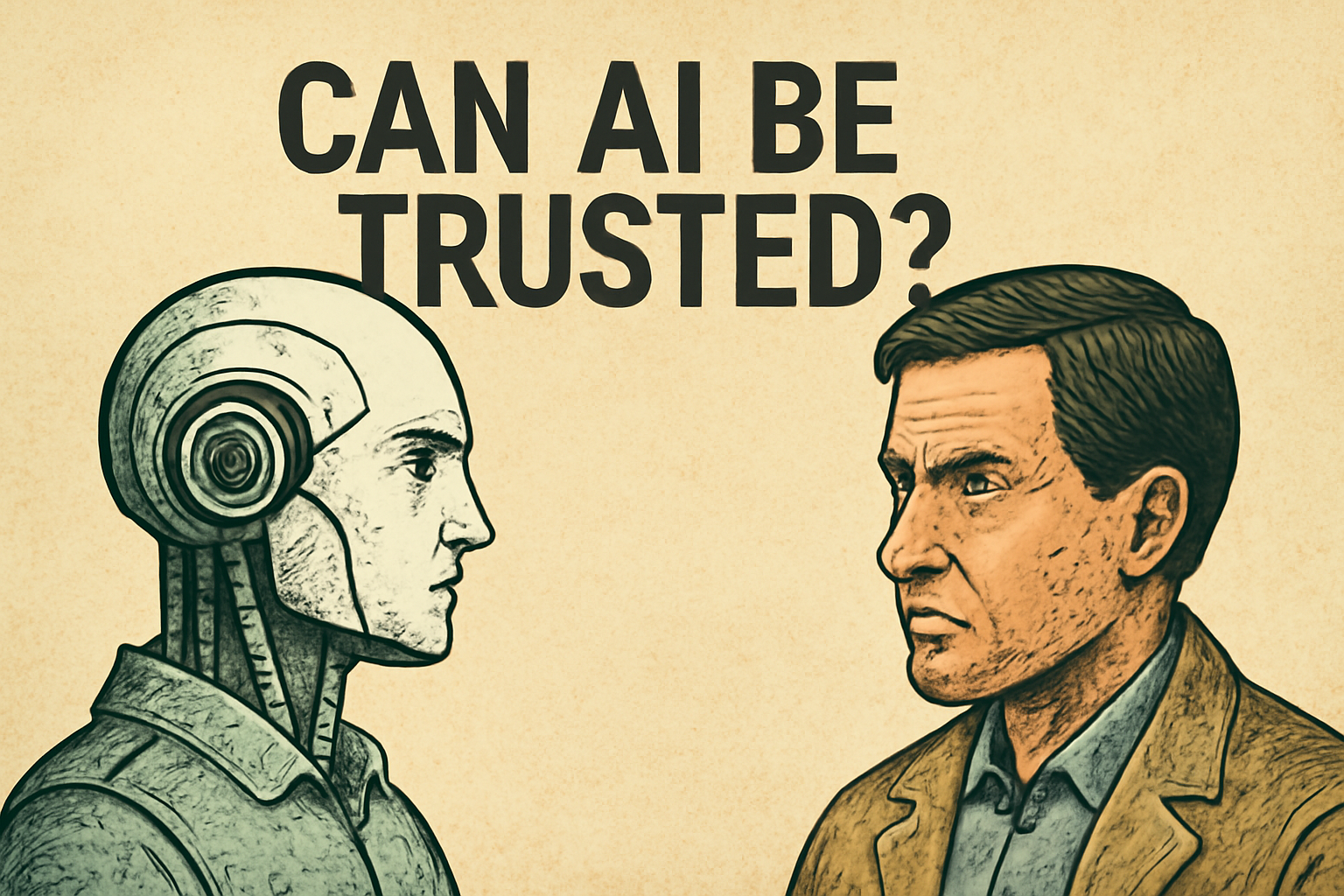Introduction
As AI systems — from chatbots and recommendation engines to medical‑diagnosis tools and autonomous vehicles — become deeply woven into our lives, a key question emerges: Can we trust AI? Trust is not automatic. For many users, AI evokes both promise and fear. According to recent studies, only a minority of people feel confident relying on AI for important decisions. Live Science+2Axios+2
This article unpacks what trust in AI means, why it’s fragile right now, what factors increase trustworthiness, and how you can engage with AI smartly — not blindly.
1. What “Trusting AI” Really Means
Trusting AI goes beyond simply using it. It means believing that the AI will:
- Perform reliably and accurately under known conditions.
- Act ethically and fairly (no hidden bias, no unfair outcomes).
- Be transparent about its capabilities and limitations.
- Be accountable (someone can take responsibility when things go wrong).
Researchers highlight that trust in AI is multidimensional — technical reliability, ethical alignment, interpretability and user control all matter. Nature
2. Why Many People Don’t Trust AI — And Why That Matters
Despite rapid advances, trust in AI remains low for several reasons:
- Opaque decision‑making (“black box”): Many AI systems give results without clear explanations. Users struggle to understand why or how decisions were made. Indiana Capital Chronicle+1
- Errors, mis‑information and bias: A study found that almost half of responses given by leading AI assistants about news topics contained major errors. Reuters
- Mistrust of organisations behind the AI: Many people don’t trust the companies or institutions using or creating AI to act responsibly. Harvard Business Review+1
- High‑stakes consequences: The more serious the decision (medical diagnosis, autonomous driving, hiring decisions), the lower the tolerance for error and the higher the demand for trust.
- “AI trust paradox”: As AI becomes more fluent and human‑like, people may trust it too much — even when it’s wrong. Wikipedia
These factors fuel the trust gap — the space between what AI systems are capable of and what people feel comfortable relying on them for. Gravital Agency
3. What Builds Trustworthy AI — Key Pillars
While no system is flawless, certain practices help make AI more deserving of user trust:
- Transparency & explainability: Users should receive clear, understandable reasons behind AI decisions when possible. When systems reveal how they reached an outcome, trust improves. arXiv
- Accuracy, reliability & robustness: AI should perform consistently, including under unexpected conditions or novel inputs. Calibration of confidence is important. arXiv
- Ethical design and fairness: AI that is free from hidden bias, discriminating behaviours or unfair outcomes is more likely to gain trust. Wikipedia
- User control and human‑in‑the‑loop: Systems should allow human oversight, especially in high‑stakes contexts, so users retain agency. Wikipedia
- Accountability and governance: Clear policies and responsible structures (who’s responsible when AI errs?) help establish trust. thecognitivepath.substack.com
4. So, Can We Trust AI — The Short Answer
Yes—but conditionally. AI can be trusted when:
- It is used in domains where the risks are understood, monitored and mitigated.
- The system is proven, transparent, and aligned with user goals.
- Users know its limitations and treat it as a tool, not an infallible authority.
In critical domains (medicine, law, public policy), full reliance on AI alone is not yet prudent. Instead, AI is better positioned as a partner to human expertise, rather than a replacement.
5. How You Can Use AI Responsibly — Tips for Everyday Users
- Use AI tools that disclose how they work and include known limitations.
- Verify AI outputs—especially when decisions have big implications for you or others.
- Retain human judgment—don’t outsource your thinking completely to AI.
- Stay informed about how your data is used, check permissions and privacy policies.
- Seek systems with human oversight when using AI for important tasks.
By doing this, you engage with AI intelligently, deriving benefit without becoming vulnerable to errors or misuse.
Conclusion
AI carries immense potential—but trust isn’t automatic. It’s earned through transparency, fairness, reliability and responsible use. As AI becomes more integrated into work, health, education and society, building and maintaining trust will determine how beneficial it becomes. By understanding when and how to trust (and not trust) AI, you position yourself to use it wisely, safely and effectively.
To learn more about AI enroll to https://training.chimpvine.com/

